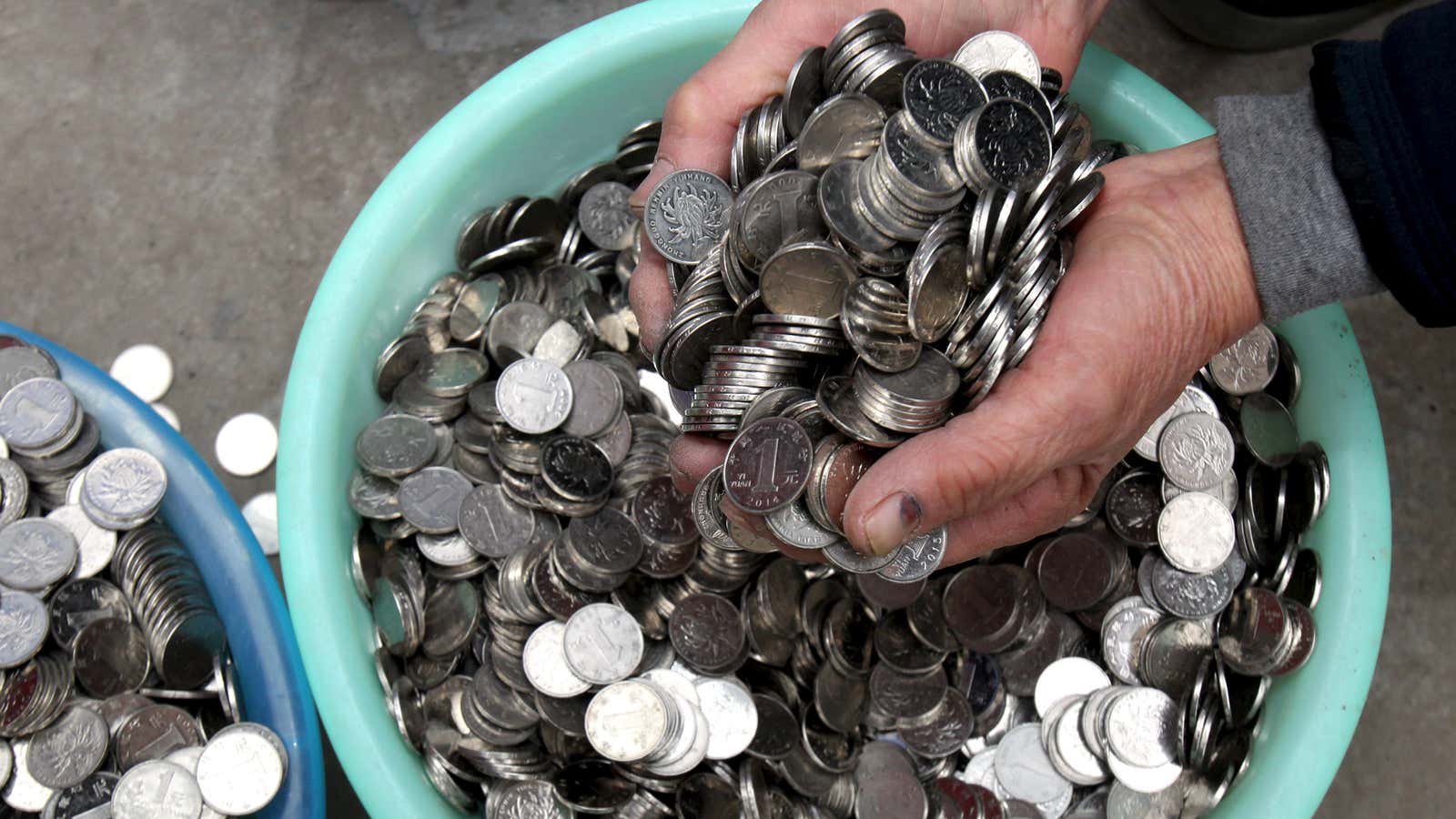It is increasingly common for governments to give poor people money. Rather than grant services or particular goods to those in poverty, such as food or housing, governments have found that it is more effective and efficient to simply hand out cash. In some cases, these cash transfers are conditional on doing something the government deems good, like sending your children to school or getting vaccinated. In other cases, they’re entirely unconditional.
For decades, policymakers have been concerned that poor people will waste free money by using it on cigarettes and alcohol. A report on the perception of stakeholders in Kenya about such programs found a “widespread belief that cash transfers would either be abused or misdirected in alcohol consumption and other non-essential forms of consumption.”
The opposite is true, according to a recently published research paper (paywall) by David Evans of the World Bank and Anna Popova of Stanford University.
Evans and Popova’s research is based on an examination of 19 studies that assess the impact of cash transfers on expenditures of tobacco and alcohol. Not one of the studies found that cash grants increase tobacco and alcohol consumption and many found that they lead to a reduction. The researchers also conducted a meta-analysis—a statistical technique for combining the results from across studies—and again found that, overall, receiving cash slightly reduced tobacco and alcohol consumption.
Why on earth would this be? Evans and Popova highlight several possibilities.
One, the cash transfers may change a poor household’s economic calculus. Before receiving the cash, any spending on education or health might have seemed futile, but afterwards, parents might decide that a serious investment in their children’s school was sensible. To make this happen, it might mean cutting back on booze and smoking.
Two, there’s what economists call the “The Flypaper Effect.” Behavioral economics research shows that when money is given for a specific purpose, people and organizations do tend to use it for that purpose, even when there is no one forcing them. In the case of cash transfers, households are generally told to use the money for family welfare.
Lastly, cash transfers are usually made to women. When women rule over household income, it’s more likely to be used on food and children’s health, studies find.
Regardless of why, the idea that poor people will use any cash they get for cigarettes and alcohol has been laid waste.
